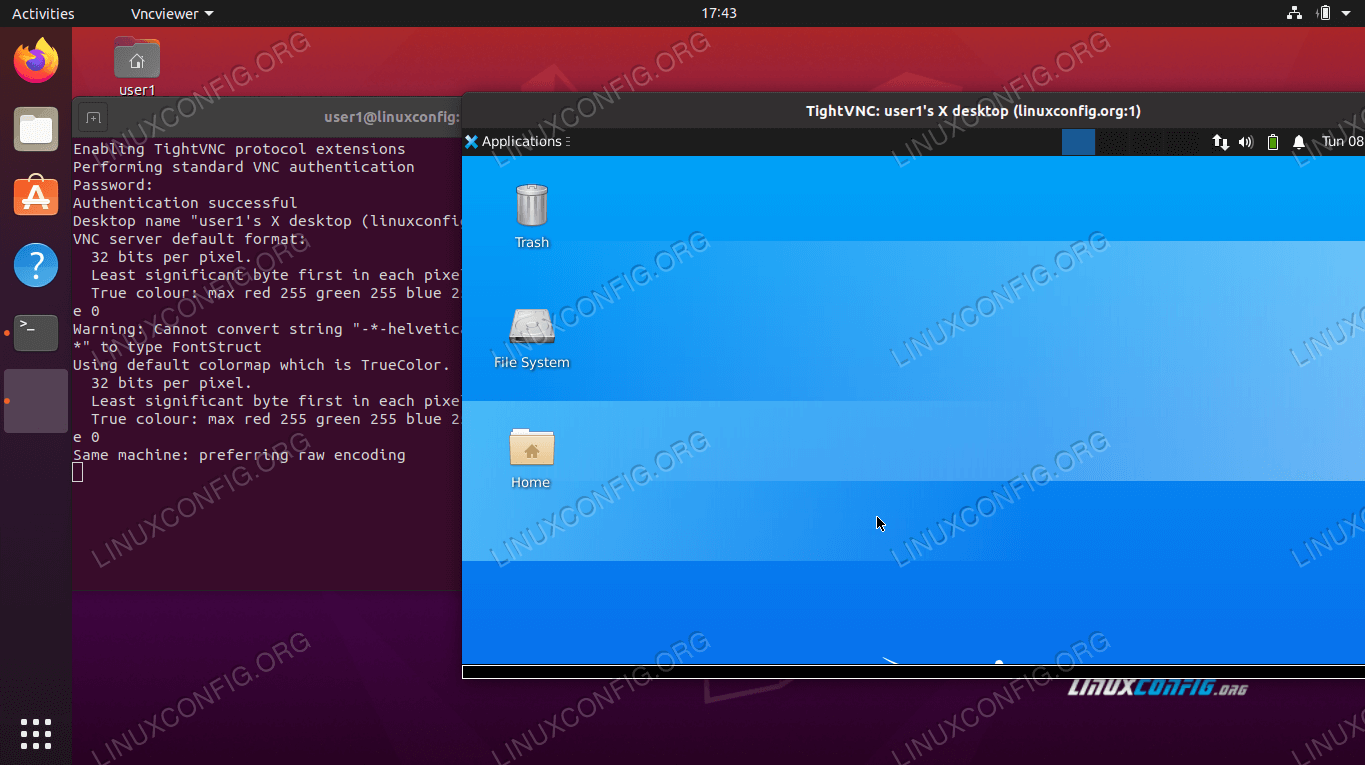

- #Linux tightvnc server configuration how to
- #Linux tightvnc server configuration install
- #Linux tightvnc server configuration update
Log file is /home/rahul/.vnc/tecadmin:1.log

Starting applications specified in /etc/X11/Xvnc-session New 'tecadmin:1 (rahul)' desktop at :1 on machine tecadmin Once the VNC server is started, you should get the following output: /usr/bin/xauth: file /home/rahul/.Xauthority does not exist Next, start the VNC server using the following command: vncserver -localhost no Would you like to enter a view-only password (y/n)? n Provide your desired password as shown below: Password: Next, switch the user to newly created account and set a VNC password with the following command: su - rahul vncpasswd
#Linux tightvnc server configuration install
You can install it by running the following command: sudo apt install tigervnc-standalone-server -yĪfter installing TigerVNC, create a new user and set a VNC password for that user.įirst, create a new user named “rahul” (or choose other name of your choice) with the following command: sudo adduser rahul The TigerVNC package are available under default package repositories under Debian 10 system. Next, restart your system to apply the changes. You can set it with the following command: sudo systemctl set-default graphical.target Once all the packages are installed, you will need to set your system boots into the graphical target.
#Linux tightvnc server configuration update
Prerequisitesįirst, update and upgrade all installed packages on your system with the following command: sudo apt update sudo apt upgrade
#Linux tightvnc server configuration how to
This tutorial help you to how to install and configure VNC server on Debian 10 Buster Linux system using the TigerVNC server. It is a client/server application that allows you to interact with graphical applications on remote machines. The TigerVNC is a free, open-source and high-performance VNC server used to control or access Linux based desktop remotely. There are multiple software services provides VNC service to access Linux based desktop remotely including, TigerVNC, TightVNC, Vino, vnc4server and more. We can say VNC is a graphical desktop-sharing system that uses the Remote Frame Buffer protocol (RFB).

VNC (Virtual Network Computing) allowed to remotely control desktop systems.


 0 kommentar(er)
0 kommentar(er)
